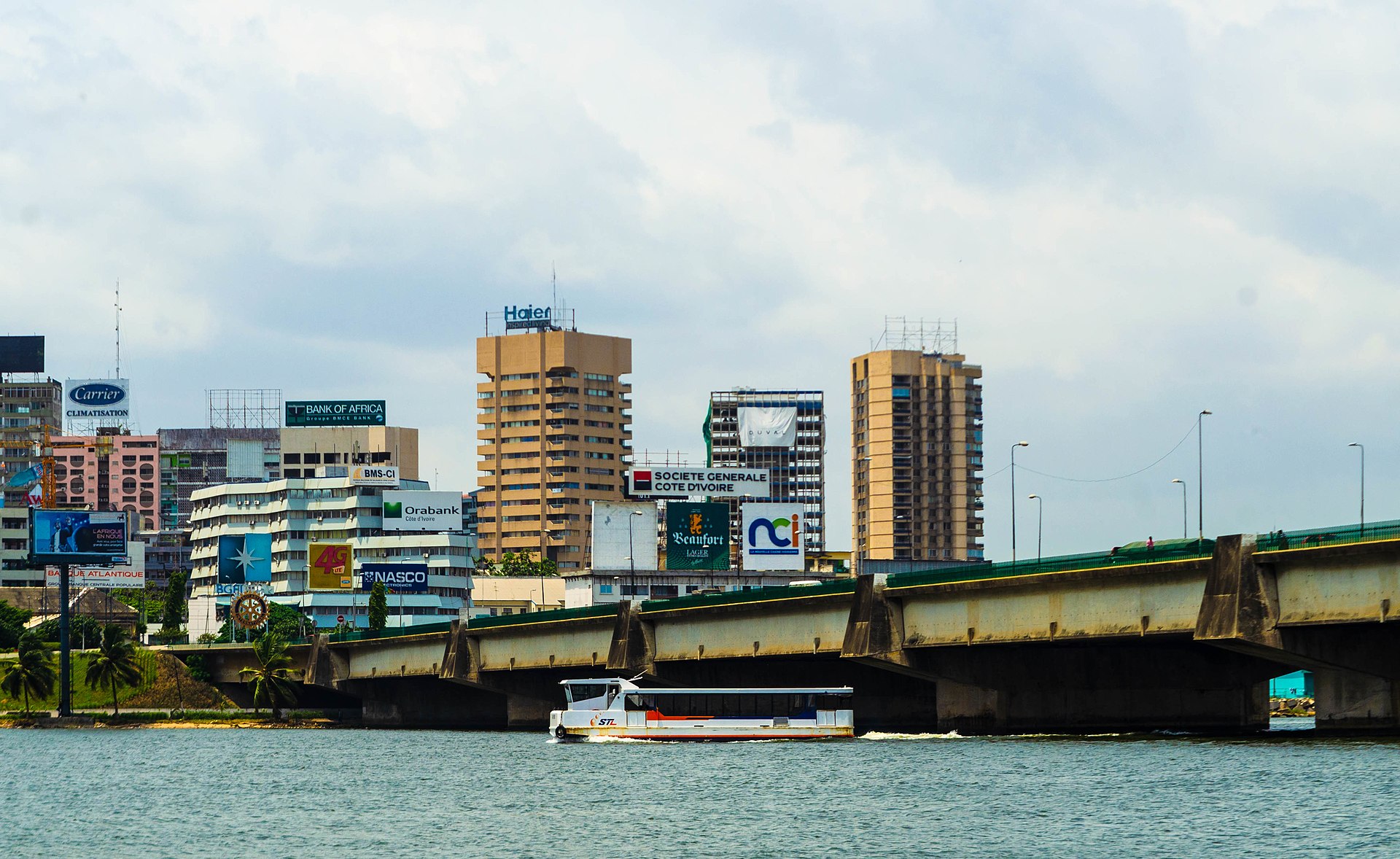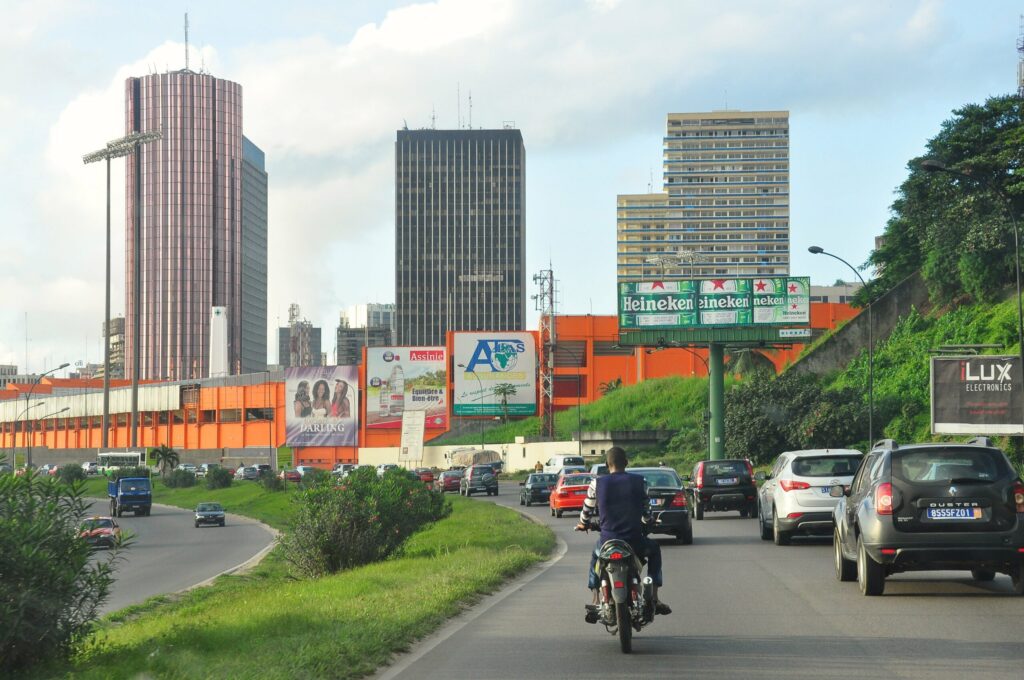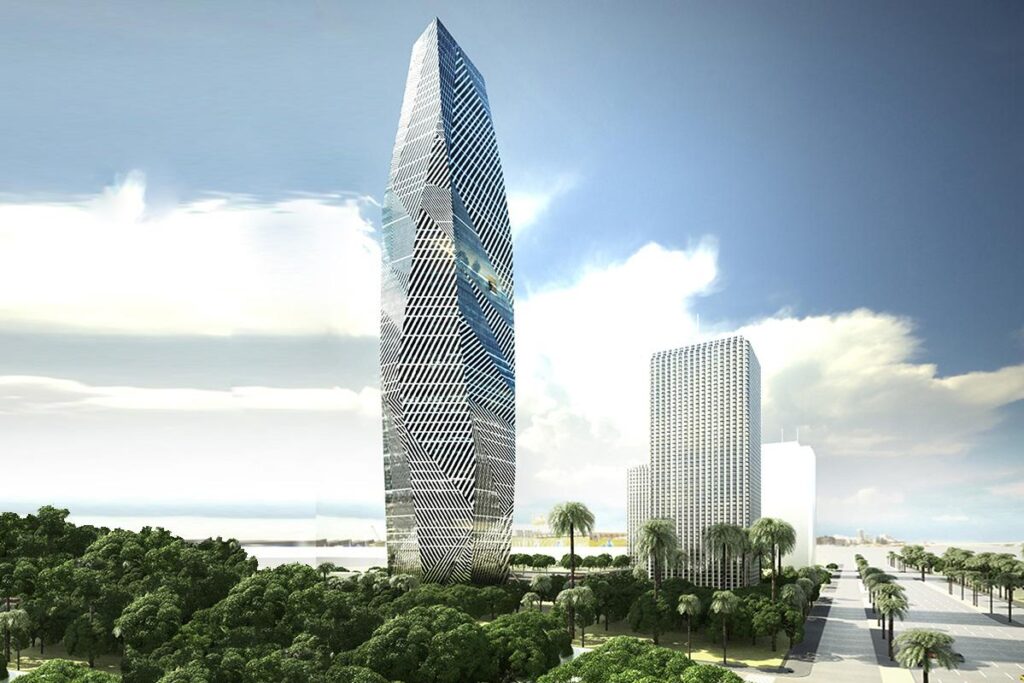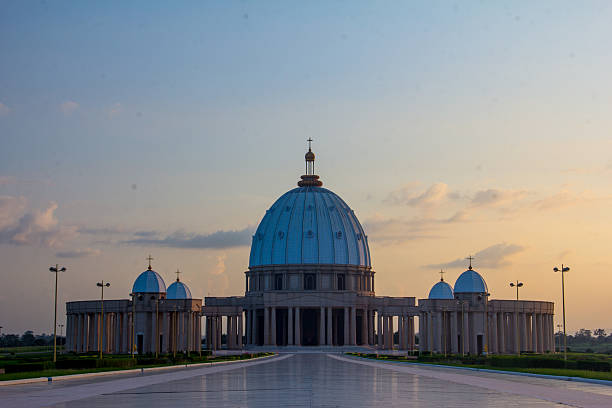Edit Content
Edit Content
Edit Content
Edit Content
Edit Content
Edit Content
We have a team of professionals to help you with all your business needs. So, that you can focus on business expansion in Cote D’Ivoire.
Please feel free to email us on enquiries@chandrawatpartners.com
With a population of more than 26 million, Cote d’Ivoire, also referred to as Ivory Coast, is a West African nation. The economy of the nation, which is among the biggest in the area, has experienced rapid growth in recent years. Because of its advantageous location for trade and investment in West Africa, Cote d’Ivoire is a member of the Economic Community of West African States (ECOWAS).
In 2022, the Ivorian economy experienced real GDP growth estimated at 6.7%, down from 7% in 2021, in the context of the global crisis. Private consumption was the primary driver of growth, which was also supported by public investment and wage increases in the civil service.
Agriculture is the main industry in the nation, followed by services and industry. The largest producer of cocoa beans in the world, Cote d’Ivoire also produces large amounts of coffee, palm oil, and rubber.
Foreign investors seeking to conduct business in the region find Cote d’Ivoire to be an alluring destination thanks to its rapidly expanding economy and advantageous location in West Africa.
The benefits of conducting business in Côte d’Ivoire include the following:
To improve the business climate in the nation, the Ivorian government has recently implemented a number of economic reforms. These include the creation of special economic zones and free trade zones as well as financial incentives for investments like tax breaks and reduced customs fees.
The economy of Cote d’Ivoire has been expanding quickly in recent years, with an average annual growth rate of roughly 8% since 2012. The economy of the nation is diverse, with a focus on industry, services, and agriculture. It also produces and exports the most cocoa beans in the world.
Natural resources like cocoa, coffee, palm oil, and rubber are plentiful in Cote d’Ivoire. It is the largest producer and exporter of cocoa beans in the world, which significantly boosts the economy of the nation.
With a median age of 19, Cote d’Ivoire has a young and rapidly expanding population. The nation has a high rate of literacy and many universities and technical institutions that produce skilled labor for a variety of industries.
Due to its advantageous location in West Africa, Cote d’Ivoire has easy access to the region’s neighboring markets. The nation is well-suited for trade and investment because it is a part of the Economic Community of West African States (ECOWAS) and has entered into a number of trade agreements with other nations in the region.
The General Tax Code and other relevant laws and regulations serve as the foundation for the tax system in Cote d’Ivoire. The Ministry of Finance and Budget’s Directorate General of Taxes (DGI), which oversees the system, is in charge of running it.
One of the main taxes in Cote d’Ivoire is the corporate income tax, which is levied on the profits of both domestic and foreign businesses doing business there. Companies must file their tax returns by 30 April of each year, and the corporate tax rate in Cote d’Ivoire is 25%.
Businesses in Cote d’Ivoire are required to pay taxes on their global earnings. However, non-resident businesses only pay taxes on their income that comes from Ivory Coast. Generally speaking, business-related expenses are deductible from taxable income under certain circumstances.
In Cote d’Ivoire, residents are subject to a progressive tax system that is applied to their personal income. Depending on the amount of the taxable income, the tax rates range from 0% to 60%. Additionally, non-residents are subject to the tax on their income earned in Ivory Coast at a flat rate of 20%.
Individuals may be subject to taxation in Cote d’Ivoire :
Income up to XOF 6,00,000 : 0%
Income from XOF 6,00,000 to 15,60,000 : 1.5%
Income from XOF 15,60,000 to 24,00,000 : 5%
Income above XOF 24,00,000 : 10%
A consumption tax known as value-added tax (VAT) is levied in Cote d’Ivoire on the purchase of goods and services. In Cote d’Ivoire, the standard VAT rate is 18%.
Businesses must register for VAT and submit monthly VAT returns if their annual sales are greater than XOF 100 million (roughly USD 170,000). In addition to the standard rate, some goods and services are subject to reduced rates of 9% and 0%.
Withholding tax is levied in Cote d’Ivoire on a variety of income streams, including royalties, dividends, interest, management fees, and technical assistance fees.
Dividends paid to non-residents are subject to a withholding tax rate of 20%, compared to a rate of 10% for residents. Interest paid to non-residents is subject to a withholding tax at a 20% rate as opposed to a 15% rate for residents.
This kind of business is one in which the owners and members both have ownership stakes and participate in decision-making. Typically, a member’s liability is only their capital contributions.
A Joint Stock Company (JSC) is a business that is owned by investors who hold stock in the business. The shareholders’ liability is capped at the value of their share capital. A JSC must have at least five shareholders in order to be formed.
There are a minimum of two and a maximum of 50 shareholders in this private limited company. The shareholders’ liability is restricted to their capital contributions.
This type of company has two or more owners who split the company’s gains and losses. The partnership’s debts and obligations are personally owed by the partners.
A sole proprietorship is a type of company in that is owned and operated by a single individual. The owner is fully responsible for all aspects of the business, including any debts or legal liabilities that may arise.
Cote d’Ivoire, located in West Africa, is a rapidly growing economy known for its significant agricultural output, including cocoa, coffee, and palm oil. Additionally, the country has a burgeoning industrial and services sector,
Author: Chandrawat & Partners
Topic: Doing Business in Cote D’Ivoire
Download our comprehensive guide on – Doing Business in Cote D’Ivoire
Get in touch with the right people to get the right help in setting up your business in Cote D’Ivoire.
Contact us at: enquiries@chandrawatpartners.com
With a population of more than 26 million, Cote d’Ivoire, also referred to as Ivory Coast, is a West African nation. The economy of the nation, which is among the biggest in the area, has experienced rapid growth in recent years. Because of its advantageous location for trade and investment in West Africa, Cote d’Ivoire is a member of the Economic Community of West African States (ECOWAS).
In 2022, the Ivorian economy experienced real GDP growth estimated at 6.7%, down from 7% in 2021, in the context of the global crisis. Private consumption was the primary driver of growth, which was also supported by public investment and wage increases in the civil service.
Agriculture is the main industry in the nation, followed by services and industry. The largest producer of cocoa beans in the world, Cote d’Ivoire also produces large amounts of coffee, palm oil, and rubber.

The General Tax Code and other relevant laws and regulations serve as the foundation for the tax system in Cote d’Ivoire. The Ministry of Finance and Budget’s Directorate General of Taxes (DGI), which oversees the system, is in charge of running it.

One of the main taxes in Cote d’Ivoire is the corporate income tax, which is levied on the profits of both domestic and foreign businesses doing business there. Companies must file their tax returns by 30 April of each year, and the corporate tax rate in Cote d’Ivoire is 25%.
Businesses in Cote d’Ivoire are required to pay taxes on their global earnings. However, non-resident businesses only pay taxes on their income that comes from Ivory Coast. Generally speaking, business-related expenses are deductible from taxable income under certain circumstances.
In Cote d’Ivoire, residents are subject to a progressive tax system that is applied to their personal income. Depending on the amount of the taxable income, the tax rates range from 0% to 60%. Additionally, non-residents are subject to the tax on their income earned in Ivory Coast at a flat rate of 20%.
Individuals may be subject to taxation in Cote d’Ivoire :
Income up to XOF 6,00,000 : 0%
Income from XOF 6,00,000 to 15,60,000 : 1.5%
Income from XOF 15,60,000 to 24,00,000 : 5%
Income above XOF 24,00,000 : 10%
This kind of business is one in which the owners and members both have ownership stakes and participate in decision-making. Typically, a member’s liability is only their capital contributions.

A Joint Stock Company (JSC) is a business that is owned by investors who hold stock in the business. The shareholders’ liability is capped at the value of their share capital. A JSC must have at least five shareholders in order to be formed.
There are a minimum of two and a maximum of 50 shareholders in this private limited company. The shareholders’ liability is restricted to their capital contributions.

This type of company has two or more owners who split the company’s gains and losses. The partnership’s debts and obligations are personally owed by the partners.
A sole proprietorship is a type of company in that is owned and operated by a single individual. The owner is fully responsible for all aspects of the business, including any debts or legal liabilities that may arise.

Chandrawat & Partners is a prominent full-service firm dedicated to delivering top-tier professional services to clients both within the domestic and international spheres.
Copyright © Chandrawat & Partners. All Rights Reserved.
Copyright © Chandrawat & Partners. All Rights Reserved.
Chandrawat & Partners stands as a dynamic and rapidly expanding full-service firm, specializing in the delivery of exceptional professional and corporate services to a diverse clientele, both foreign and local. We proudly represent companies and individuals across a wide spectrum of sectors through distinct entities established in various countries worldwide.
Chandrawat & Partners stands as a dynamic and rapidly expanding full-service firm, specializing in the delivery of exceptional professional and corporate services to a diverse clientele, both foreign and local. We proudly represent companies and individuals across a wide spectrum of sectors through distinct entities established in various countries worldwide.
ASIA
AFRICA
EUROPE
NORTH AMERICA
SOUTH AMERICA
OCEANIA